
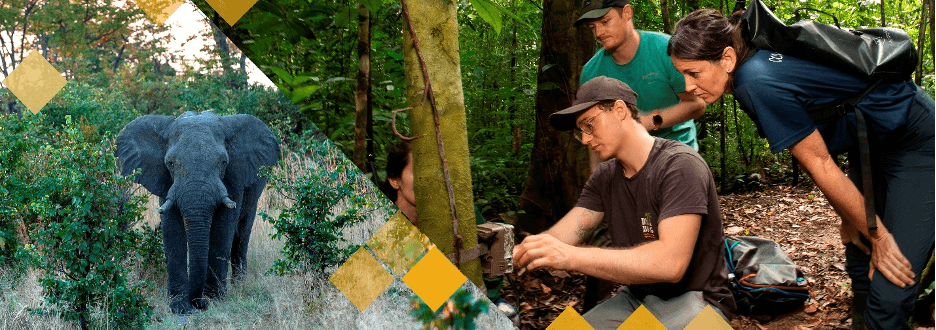
Early Warning Systems for Human-Wildlife Conflict, Zoonotic Spillover, and Other Conservation Challenges
Webinar hosted by the Global Wildlife Program
- Registration: Zoom registration here
- Date: Tuesday, 23 April 2024
- Time: 9:00 AM EDT | 2:00 PM GMT | 4.00 PM EAT | 8.00 PM ICT (Time zone converter)
- Language: Webinar is in English with simultaneous interpretation in French and Spanish
Overview
Climate change is altering ecosystems worldwide, leading to shifts in habitat ranges, changes in wildlife behaviors, and escalating interactions between humans and wildlife. As these changes continue to unfold, the likelihood of conflict between humans and wildlife is heightened, and the risks of zoonotic diseases spilling over from wildlife to humans increases. These complex, interconnected challenges underscore the pressing need for proactive interventions to mitigate risks and foster coexistence.
Early warning systems emerge as crucial tools in this context, enabling practical approaches to detecting and responding to emerging threats. By leveraging advanced sensor technologies, data analytics, and community engagement, these systems facilitate the timely detection of environmental changes, wildlife movements, and disease outbreaks. While early warning systems hold great potential, the landscape of scaled, ready-to-implement tools is relatively sparse in the context of wildlife conservation. However, there are other sectors from which lessons can be learned on how to set up early warning systems.
This webinar will discuss these lessons as well as emerging examples in conservation. From integrated data platforms in wildlife reserves to emerging efforts to leverage AI to support rapid responses in conflict-prone areas, this event will showcase how data-driven approaches have reduced incidents and promoted coexistence. Join us to explore innovative solutions, share insights and approaches, and begin a discussion to address the barriers inhibiting efforts to scale successful pilots into widely used tools in a changing world.
Chair
Stephanie O'Donnell, Executive Manager, WILDLABS
Speakers
- Melissa Williams, Senior Agriculture Economist in the Agriculture & Food Global Practice, World Bank
- Henrik Cox, Project Lead, Sentinel and Conservation X Labs
- Bruce Jones, Partnerships Director, EarthRanger
- Sarah Olson, Director of Health Research for the Health Program, Wildlife Conservation Society (WCS)
Speaker Bios
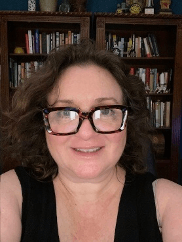 | Melissa Williams, Senior Agriculture Economist, World Bank Melissa Williams is Senior Agriculture Economist in the Agriculture & Food Global Practice. In 30 years at the Bank, she has worked on operations in South Asia and Eastern & Southern Africa, specializing in rural livelihoods development, women’s empowerment, agriculture for nutrition, and agriculture in FCV countries. More recently, she led the development and early implementation of the Emergency Locust Response Program in Eastern & Southern Africa for which she engaged in a regional dialogue about early warning systems for transboundary pests, and ultimately financed a regional platform for improved multi-country coordination. She currently works on project quality, gender, and food and nutrition security in the AGF global engagement unit. |
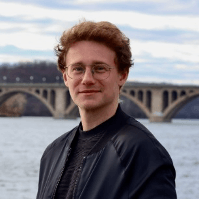 | Henrik Cox, Project Lead, Sentinel and Conservation X Labs Henrik Cox is the Head of Product at Conservation X Labs and the Project Lead for Sentinel - an AI-driven solution for protecting and measuring ecosystem health. Sentinel includes field-deployed smart cameras that provide early warnings to mitigate human-wildlife conflict, prevent zoonotic disease spillover, and respond to threats to biodiversity. Henrik and his team have been recognized with multiple awards, including AI for the Planet, the UN's Top 100 Promising AI Solutions three years running, EarthRanger, and the Edge AI and Vision Alliance. |
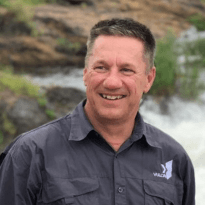 | Bruce Jones, Partnerships Director, EarthRanger Bruce Jones supports the onboarding and continuous management of partners for the Allen Institute for Artificial Intelligence's (Ai2) EarthRanger, a powerful software solution built to meet the unique needs of protected area managers and conservation organisations. With a passion for conservation and background as an entrepreneur and businessman, Bruce supports the implementation of EarthRanger to protected areas globally, and helps the Ai2 team welcome new partners to the EarthRanger user community as they adopt technology-driven conservation solutions. Bruce holds a BSc Civil Engineering degree and an MBA, both from the University of Cape Town (UCT). |
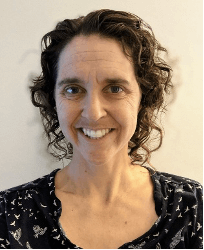 | Sarah Olson, Director of Health Research for the Health Program, WCS Sarah Olson joined WCS in 2011 and is currently the Director of Health Research for the Health Program. She received a joint PhD in Population Health and Environment & Resources from the University of Wisconsin-Madison and studied how deforestation and climate affect malaria incidence in the Amazon. Trained in environmental research and public health, her research with WCS has focused on front-line wildlife conservation and One Health challenges, including the wildlife trade and emerging infectious diseases. She is currently focused on understanding and mitigating wildlife health and zoonotic disease threats, often associated with anthropogenic drivers, and helping grow sustainable and effective wildlife health surveillance systems. |
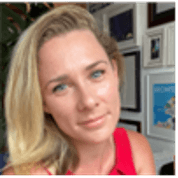 | Stephanie O’Donnell, Executive Manager of WILDLABS Stephanie O’Donnell is the Executive Manager of WILDLABS, the global community for conservation technology. Stephanie guides the WILDLABS community of conservationists, technologists, engineers and entrepreneurs, supporting them to find, create and deploy effective technology-based solutions to protect threatened wildlife and habitats. She works with GWP to support conservation technology knowledge events and provide mentoring to GWP projects. |
This virtual event is hosted by the Global Wildlife Program, a Global Environment Facility-funded, World Bank-led program to combat illegal and unsustainable wildlife trade, promote wildlife-based economies and enable human-wildlife coexistence.
For more information, please contact the Global Wildlife Program Coordination Team at [email protected]






Add the first post in this thread.